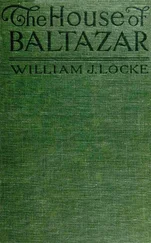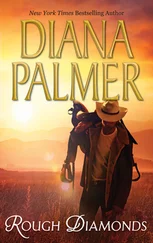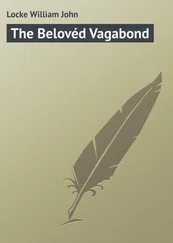William Locke - The Rough Road
Здесь есть возможность читать онлайн «William Locke - The Rough Road» — ознакомительный отрывок электронной книги совершенно бесплатно, а после прочтения отрывка купить полную версию. В некоторых случаях можно слушать аудио, скачать через торрент в формате fb2 и присутствует краткое содержание. Жанр: foreign_prose, на английском языке. Описание произведения, (предисловие) а так же отзывы посетителей доступны на портале библиотеки ЛибКат.
- Название:The Rough Road
- Автор:
- Жанр:
- Год:неизвестен
- ISBN:нет данных
- Рейтинг книги:4 / 5. Голосов: 1
-
Избранное:Добавить в избранное
- Отзывы:
-
Ваша оценка:
- 80
- 1
- 2
- 3
- 4
- 5
The Rough Road: краткое содержание, описание и аннотация
Предлагаем к чтению аннотацию, описание, краткое содержание или предисловие (зависит от того, что написал сам автор книги «The Rough Road»). Если вы не нашли необходимую информацию о книге — напишите в комментариях, мы постараемся отыскать её.
The Rough Road — читать онлайн ознакомительный отрывок
Ниже представлен текст книги, разбитый по страницам. Система сохранения места последней прочитанной страницы, позволяет с удобством читать онлайн бесплатно книгу «The Rough Road», без необходимости каждый раз заново искать на чём Вы остановились. Поставьте закладку, и сможете в любой момент перейти на страницу, на которой закончили чтение.
Интервал:
Закладка:
“Of course he’ll stay to dinner,” said Peggy; and she looked at Oliver as who should say, “Touch him at your peril: he belongs to me.”
So Doggie had to yield. Mrs. Conover went into the house to arrange for Oliver’s comfort, and the others strolled round the garden.
“Well, my boy,” said the Dean, “so you’re back in the old country?”
“Turned up again like a bad penny.”
The Dean’s kindly face clouded. “I hope you’ll soon be able to find something to do.”
“It’s money I want, not work,” said Oliver.
“Ah!” said the Dean, in a tone so thoughtful as just to suggest a lack of sympathy.
Oliver looked over his shoulder – the Dean and himself were preceding Marmaduke and Peggy on the trim gravel path. “Do you care to lend me a few thousands, Doggie?”
“Certainly not,” replied Marmaduke.
“There’s family affection for you, Uncle Edward! I’ve come half-way round the earth to see him, and – say, will you lend me a fiver?”
“If you need it,” said Marmaduke in a dignified way, “I shall be very happy to advance you five pounds.”
Oliver brought the little party to a halt and burst into laughter.
“I believe you good people think I’ve come back broke to the world. The black sheep returned like a wolf to the fold. Only Peggy drew a correct inference from the valet – wait till you see him! As Peggy said, I’ve been getting on.” He laid a light hand on the Dean’s shoulder. “While all you folks in Durdlebury, especially my dear Doggie, for the last ten years have been durdling, I’ve been doing. I’ve not come all this way to tap relations for five-pound notes. I’m swaggering into the City of London for Capital – with a great big C.”
Marmaduke twirled his little moustache. “You’ve taken to company promoting,” he remarked acidly.
“I have. And a damn – I beg your pardon, Uncle Edward – we poor Pacific Islanders lisp in damns for want of deans to hold us up – and a jolly good company too. We – that’s I and another man – that’s all the company as yet – two’s company, you know – own a trading fleet.”
“You own ships?” cried Peggy.
“Rather. Own ’em, sail ’em, navigate ’em, stoke ’em, clean out the boilers, sit on the safety valves when we want to make speed, do every old thing – ”
“And what do you trade in?” asked the Dean.
“Copra, bêche-de-mer, mother-of-pearl – ”
“Mother-of-pearl! How awfully romantic!” cried Peggy.
“We’ve got a fishery. At any rate, the concession. To work it properly we require capital. That’s why I’m here – to turn the concern into a limited company.”
“And where is this wonderful place?” asked the Dean.
“Huaheine.”
“What a beautiful word!”
“Isn’t it?” said Oliver. “Like the sigh of a girl in her sleep.”
The old Dean shot a swift glance at his nephew; then took his arm and walked on, and looked at the vast mass of the cathedral and at the quiet English garden in its evening shadow.
“Copra, bêche-de-mer, mother-of-pearl, Huaheine,” he murmured. “And these strange foreign things are the commonplaces of your life!”
Peggy and Marmaduke lagged behind a little. She pressed his arm.
“I’m so glad you’re staying for dinner. I shouldn’t like to think you were running away from him.”
“I was only afraid of losing my temper and making a scene,” replied Doggie with dignity.
“His manners are odious,” said Peggy. “You leave him to me.”
Suddenly the Dean, taking a turn that brought him into view of the porch, stopped short.
“Goodness gracious!” he cried. “Who in the world is that?”
He pointed to a curious object slouching across the lawn; a short hirsute man wearing a sailor’s jersey and smoking a stump of a blackened pipe. His tousled head was bare; he had very long arms and great powerful hands protruded at the end of long sinewy wrists from inadequate sleeves. A pair of bright eyes shone out of his dark shaggy face, like a Dandy Dinmont’s. His nose was large and red. He rolled as he walked. Such a sight had never been seen before in the Deanery garden.
“That’s my man. Peggy’s valet,” said Oliver airily. “His name is Chipmunk. A beauty, isn’t he?”
“Like master, like man,” murmured Doggie.
Oliver’s quick ears caught the words intended only for Peggy. He smiled brightly.
“If you knew what a compliment you were paying me, Doggie, you wouldn’t have said such a thing.”
The man seeing the company stare at him, halted, took his pipe out of his mouth, and scratched his head.
“But – er – forgive me, my dear Oliver,” said the Dean. “No doubt he is an excellent fellow – but don’t you think he might smoke his pipe somewhere else?”
“Of course he might,” said Oliver. “And he jolly well shall.” He put his hand to his mouth, sea-fashion – they were about thirty yards apart – and shouted: “Here, you! What the eternal blazes are you doing here?”
“Please don’t hurt the poor man’s feelings,” said the kindly Dean.
Oliver turned a blank look on his Uncle. “His what? Ain’t got any. Not that kind of feelings.” He proceeded: “Now then, look lively! Clear out! Skidoo!”
The valet touched his forehead in salute, and – “Where am I to go to, Cap’en?”
“Go to – ”
Oliver checked himself in time, and turned to the Dean.
“Where shall I tell him to go?” he asked sweetly.
“The kitchen garden would be the best place,” replied the Dean.
“I think I’d better go and fix him up myself,” said Oliver. “A little conversation in his own language might be beneficial.”
“But isn’t he English?” asked Peggy.
“Born and bred in Wapping,” said Oliver.
He marched off across the lawn; and, could they have heard it, the friendly talk that he had with Chipmunk would have made the Saint and the Divines, and even the Crusader, Sir Guy de Chevenix, who were buried in the cathedral, turn in their tombs.
Doggie, watching the disappearing Chipmunk, Oliver’s knuckles in his neck, said:
“I think it monstrous of Oliver to bring such a disreputable creature down here.”
Said the Dean: “At any rate, it brings a certain excitement into our quiet surroundings.”
“They must be having the time of their lives in the Servants’ Hall,” said Peggy.
CHAPTER IV
After breakfast the next morning Doggie, attired in a green shot-silk dressing-gown, entered his own particular room and sat down to think. In its way it was a very beautiful room – high, spacious, well-proportioned, facing south-east. The wall-paper, which he had designed himself, was ivory-white with veinings of peacock-blue. Into the ivory-silk curtains were woven peacocks in full pride. The cushions were ivory and peacock-blue. The chairs, the writing-table, the couch, the bookcases, were pure Sheraton and Hepplewhite. Vellum-bound books filled the cases – Doggie was very particular about his bindings. Delicate water-colours alone adorned the walls. On his neatly arranged writing-table lay an ivory set – inkstand, pen-tray, blotter and calendar. Bits of old embroidery harmonizing with the peacock shades were spread here and there. A pretty collection of eighteenth-century Italian ivory statuettes were grouped about the room. A spinet, inlaid with ebony and ivory, formed a centre for the arrangement of many other musical instruments – a viol, mandolins gay with ribbons, a theorbo, flutes and clarinets. Through the curtains, draped across an alcove, could be guessed the modern monstrosity of a grand piano. One tall closed cabinet was devoted to his collection of wall-papers. Another, open, to a collection of little dogs in china, porcelain, faïence; thousands of them; he got them through dealers from all over the world. He had the finest collection in existence, and maintained a friendly and learned correspondence with the other collector – an elderly, disillusioned Russian prince, who lived somewhere near Nijni-Novgorod. On the spinet and on the writing-table were great bowls of golden rayon d’or roses.
Читать дальшеИнтервал:
Закладка:
Похожие книги на «The Rough Road»
Представляем Вашему вниманию похожие книги на «The Rough Road» списком для выбора. Мы отобрали схожую по названию и смыслу литературу в надежде предоставить читателям больше вариантов отыскать новые, интересные, ещё непрочитанные произведения.
Обсуждение, отзывы о книге «The Rough Road» и просто собственные мнения читателей. Оставьте ваши комментарии, напишите, что Вы думаете о произведении, его смысле или главных героях. Укажите что конкретно понравилось, а что нет, и почему Вы так считаете.












